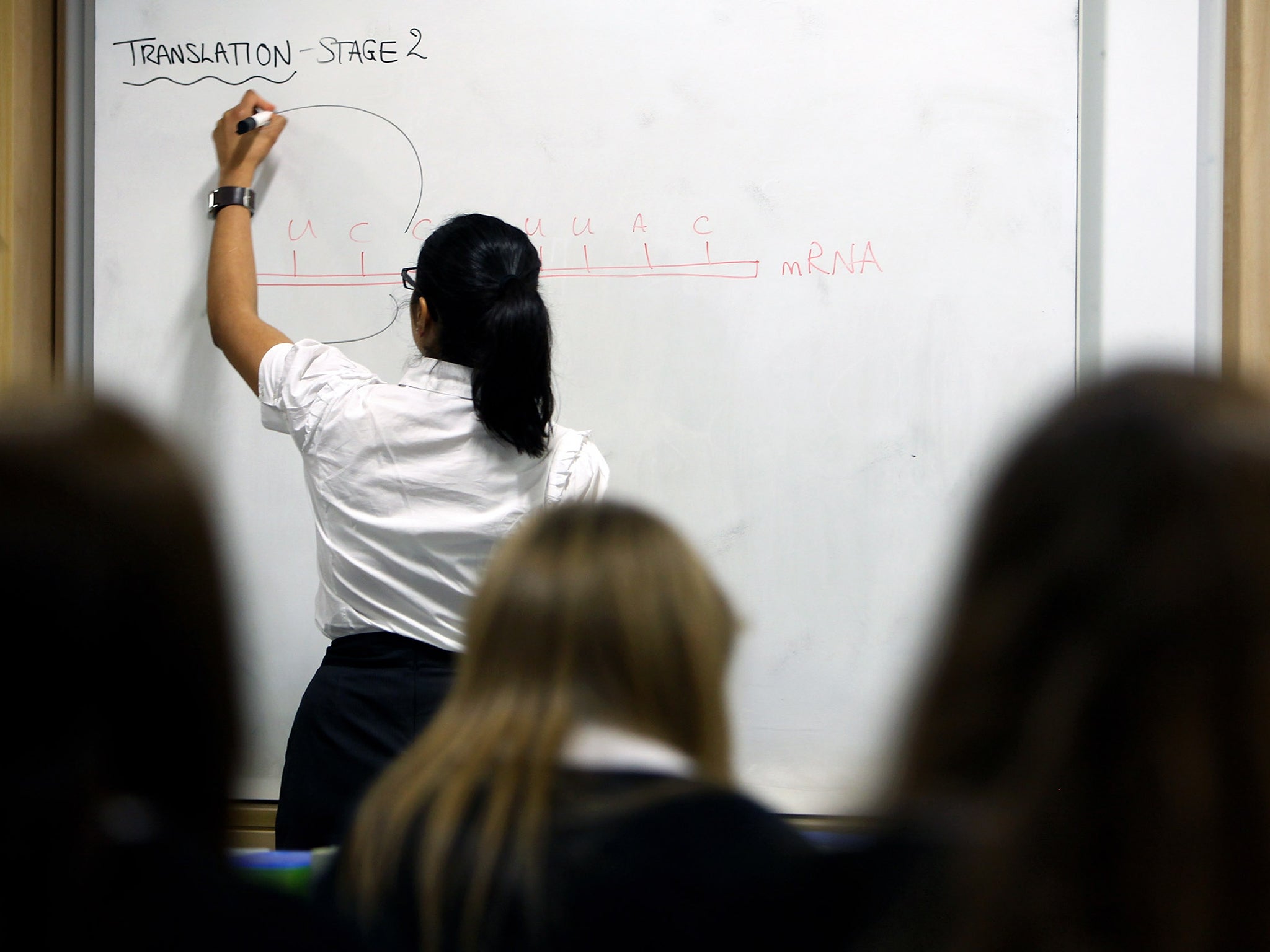Half of young teachers considering quitting the profession
Heavy workloads and lack of work-life balance is contributing towards a 'crisis' in teacher retention and recruitment, industry leaders warn

Almost half of young teachers say mental health concerns could force them to quit the profession, new figures suggest, with thousands citing heavy workloads and lack of support as a problem.
A survey of more than 3,000 teachers under the age of 36 suggests more than four in 10 (45 per cent) may choose to leave within five years.
Almost three quarters said they were working 51 hours or more per week, and nearly a quarter said they were doing more than 61 hours.
The findings come amid warnings of a teacher recruitment crisis, with pupil numbers at secondary schools expected to spike by more than 500,000 to 3.3 million by 2025.
Government figures show the overall number of full-time teachers in secondary schools fell by 10,000 between 2010 and 2015, fuelling concerns the profession is becoming increasingly unappealing thanks to workload pressures and unsatisfactory pay.
Commenting on the latest survey figures, teaching union leaders said the link between not being able to achieve a reasonable work-life balance and mental health issues is one that “cannot be ignored”.
The Department for Education’s most recent Teacher Workload survey found primary school teachers with less than six years of experience were working an average of almost 19 hours per week outside school hours.
Responding to the survey, led by the National Union of Teachers’ Young Teachers Working Party, the majority of educators (85 per cent) said they found it “very difficult” to achieve a work-life balance.
Some 83 per cent admitted that administrative tasks added to their workloads and “did not contribute to the teaching of children”.
More than three quarters (77 per cent) said their morale had declined since starting teaching, and a third (32 per cent) of newly qualified teachers specifically said they felt they had not received adequate support within their first years in the profession.
Poor management, feeling undervalued, time pressures and SATs exams were also highlighted as recurring problems.
One teacher stated: “In a typical week I have five morning briefings, one department meeting, school detention to run, options evening until 8.00 pm, morning breakfast meeting on accountability, star rota supporting behaviour, two break duties.
“None of these demands on my time benefit my teaching or allow time for planning let alone marking."
Another teacher said: "Some days I can end up with 90 pieces of work to stick and mark.”

Commenting on the report, Kevin Courtney, NUT general secretary, said the fact that so many teachers were being forced to work 50-hour weeks was “unacceptable”.
“Mental wellbeing is a key issue for young teachers and a decent work-life balance is therefore essential to facilitating good mental health,” he said.
“Young teachers are the future of the profession yet many talented and enthusiastic professionals are being driven away from teaching to the detriment of our children’s education.
“The Government needs to accept its responsibility in this crisis and take positive steps to resolve the issues behind the problems of teacher workload that are clearly blighting the profession.”
Last year Mr Courtney blamed former Education Secretary Michael Gove specifically for inciting changes to education causing teachers to leave the profession in droves.
His comments followed news that almost a third of newly qualified teachers who began working in English schools six years ago have already left the profession.
Government figures stated some 7,230 new teachers had left their jobs by the end of the last academic year to pursue different careers altogether.
A spokesperson for the Department for Education said: “As Education Secretary Justine Greening made clear when she addressed the launch of the new College of Teaching earlier this year, she wants to see all teachers supported with the right framework to allow them to become the best professionals they possibly can be.
“We continue to work with teachers, unions and Ofsted to tackle unnecessary workload and challenge unhelpful practices that create extra work, including through an offer of targeted support to schools. Alongside this we are exploring ways to improve career progression for teachers to encourage them to stay in the profession.”
Join our commenting forum
Join thought-provoking conversations, follow other Independent readers and see their replies
Comments
Bookmark popover
Removed from bookmarks